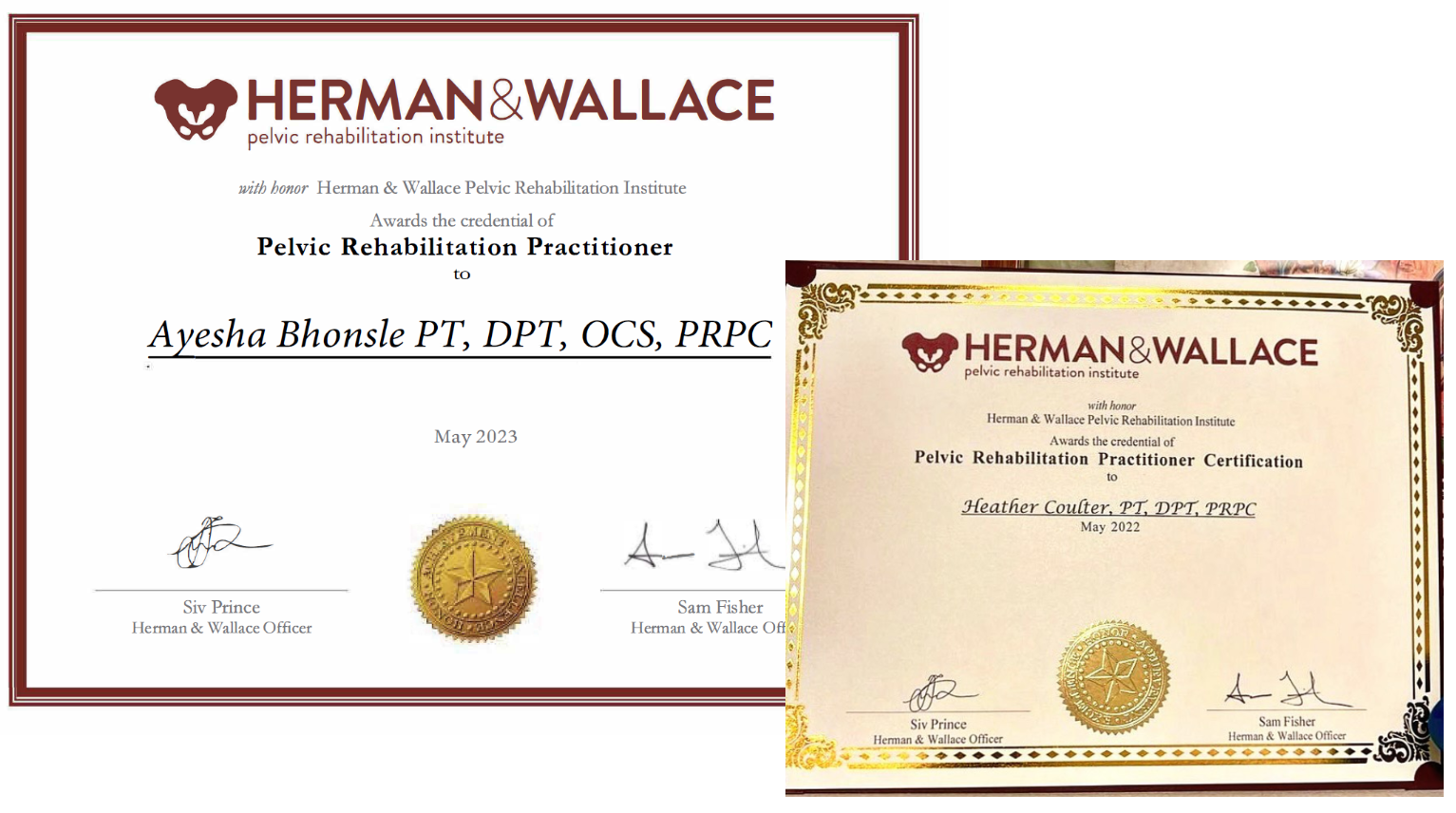Learn More About the PRPC

It is important that the PRPC remains current and reflects the knowledge and skills of the pelvic rehab practitioner working in the field today. The best practice for professional certification examinations like the PRPC is for them to be evaluated every 7-10 years to ensure that they continue to reflect the most current knowledge and evidence in the field.
As the PRPC will become 10 years old in 2024, HW is excited to announce that we have gathered a dedicated team of Subject Matter Experts, to analyze and update the PRPC items (multiple choice questions and answers) where needed. The Subject Matter Experts have been chosen from HW Senior Faculty and have been teaching for the Institute for over a decade. They live and work all around the United States, come from diverse backgrounds, and treat different regional patient populations all of which are important for an exam that is administered worldwide. They will be deciding which items need to be thrown out, reworked, or kept. Expected changes to the exam include updated terminology and case studies to be more inclusive of patients across the gender spectrum. The result of this process will be an exam that does not change significantly - items will still cover knowledge and skills for treating pelvic rehab patients throughout the life cycle - but that keeps up with the newest research in that field.
By going through this process, HW ensures that the PRPC remains a valid and legally defensible distinction of competence in the field.
Questions About PRPC Eligibility & Benefits

@sir_duke_samoyed I be good boy helping my mom study for her PRPC 📚.
TIP: #PRPC to share photos of your PRPC Certificate and study sessions on social media!
Do I need to take any particular courses to be eligible for this certification?
There is no required coursework one must complete in order to sit for the PRPC exam. Those therapists who possess the required clinical experience who apply for and successfully pass the exam will be awarded PRPC. Most therapists complete pelvic rehab coursework and then use those skills in the clinic for years prior to pursuing certification. HW recommends that therapists considering applying for the PRPC review the List of Knowledge and Skill Statements covered on the exam and assess their comfort level with those topics. Advanced coursework may be useful in filling any knowledge gaps that exist.

Thank you to Ayesha Bhonsle and Heather Coulter for sharing their PRPC certificates with H&W.
What are the eligibility requirements to apply for PRPC?
To be eligible to sit for the exam, all applicants must have completed 2000 hours of direct pelvic patient care in the past 8 years, 500 of which must have been completed in the last 2 years. Patient care hours can only be earned by a licensed clinician, and hours spent with patients prior to licensure do not satisfy this requirement.
Definition of Direct Pelvic Patient Care
For purposes of this application, pelvic patient care includes hours spent on direct patient care related to conditions of pelvic pain, pelvic girdle dysfunction, conditions of bowel, bladder, and sexual dysfunction that relate, in whole or in part, to the health and function of pelvic structures and the pelvic floor. Other conditions that qualify as direct pelvic patient care may include dysfunctions of the abdomen, thoracolumbar spine, or the lumbo-pelvic-hip complex. These hours can include care for pediatric, adolescent, adult, and aged patients of any gender.
There is no comprehensive list of activities that encompass direct patient care. A general guideline is that direct patient care includes any time spent by a clinician that has a direct influence on the care of a specific individual patient. This time may be paid, or provided at no cost. While time spent on the examination, evaluation, diagnosis, prognosis, or intervention of an individual absolutely qualifies as direct patient care, there are other activities that applicants may apply toward this requirement.
Approved Professions
All clinicians holding a license as a: Physical Therapist (PT), Physical Therapist Assistant (PTA), Physician (MD), Registered Nurse (RN), Occupational Therapist (OT), Certified Occupational Therapy Assistant (COTA), Doctor of Osteopathy (DO), Advanced Registered Nurse Practitioner (ARNP), or Physician’s Assistant (PA-C) are automatically approved to apply for PRPC.

Thank you to Ayesha Bhonsle for sharing her practitioner listings with H&W for this article.
What are the benefits of becoming a PRPC-certified practitioner?
Clinicians who earn their PRPC certification may amend their professional title and all accompanying documentation (CV, business cards, resume) with the letters "PRPC" to distinguish themselves as an expert in the field of pelvic rehabilitation. These practitioners will also receive the following HW benefits:
- Lifetime Course Discount - H&W extends a $50 discount on all courses for the duration of your certification.
- PRPC Directory Listing - H&W maintains a directory dedicated to Certified Pelvic Rehabilitation Practitioners
- PelvicRehab.com Gold Listing - Your PelvicRehab.com practitioner listing is updated to gold and shows at the top of local search.
Click Here to Learn More About Becoming Certified!
Is your certification expiring soon?
The PRPC Certification is valid for 10 years from the date you passed the exam. That means that if you became certified in 2014 you will need to retake the PRPC exam in 2024 to maintain your credential.
As a PRPC Certified Practitioner wanting to renew your credentials you will need to go through the PRPC application process online. The difference is that you will need to reach out to HW to receive a practitioner-specific renewal code so that your application fee will be waived. You are responsible for paying the exam fee - and will need to pass the exam to maintain your credential for another 10 years.
By accepting you will be accessing a service provided by a third-party external to https://hermanwallace.com/






































